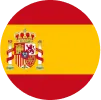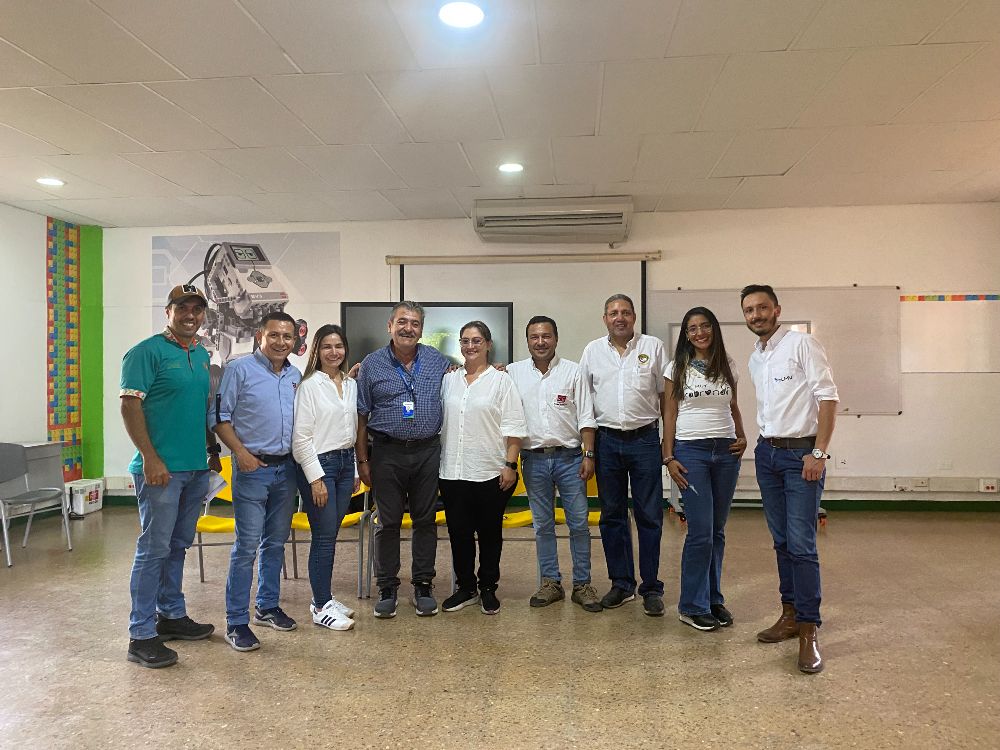Agustín, Cesar. June 29, 2023. Empresa Colombiana de Productos Veterinarios, VECOL S.A., and Corporación colombiana de investigación agropecuaria - AGROSAVIA, entities linked to the Ministry of Agriculture and Rural Development in Colombia, together with the Mayor's Office of Uribia, Centro Agroempresarial and Acuícola of SENA in Fonseca, Universidad de Santander - Valledupar Headquarters, and LMV laboratories, with the support of local associations and FEDEANCO, initiated the inter-institutional project aimed at implementing a model that promotes a change in culture in the customs of Colombian farmers: from curative medicine to preventive medicine. In this case, the turn is for sheep and goat farming in the municipality of Uribia in La Guajira, where 43.5 % of the goat population and 18.5 % of the sheep population of Colombia is found, according to the livestock inventory of Instituto Colombiano Agropecuario-ICA.
The general objective of Sanitary Excellence Projects in areas of productive importance is to generate epidemiological indicators that allow correct decision-making. The specific objectives include establishing the infectious and parasitic diseases profile in animals in the referred area; generating epidemiological maps of the diseases studied in the intervened region; generating indicators that serve as a baseline for decision-making and generating policies that facilitate access to markets, and; proposing a health plan according to the region's profile for diseases control.
For sheep/goat farming, the project has been carried out in the departments of Boyacá (northern Boyacá), Santander (eastern Santander), Cesar (northern Cesar), and La Guajira (southern and central Guajira). Julio Tobón, coordinator of Vecol's health excellence projects, states, "According to figures from DANE, in Colombia, it is estimated that the expenses for curative medicines represent about 20% of the economic losses of livestock farms and about 38% of the causes of death in animals are due to diseases, being of special interest the sheep and goat populations in Colombia since most of it is in the hands of small producers, fulfilling an important economic function in rural communities and other poverty concentration areas."
Diego Ortiz, Researcher of the Tibaitatá Research Center of AGROSAVIA, manifested, "Through the workshop on the use of epidemiological, bioclimatic and diagnostic tools carried out to initiate the project, the participants got to know the scientific method used to estimate the size of the animal population to be sampled. This was done to achieve the representativeness of the information and involve the regional actors in the project, understanding the importance of the investigation and the interpretation of the results, which will correspond to the region and not to each community or property sampled."
The main field activities that will be carried out together with technicians from the Mayor's Office of Uribia are taking blood and feces samples from each animal, their transport, and performing laboratory analyses. The project also seeks to strengthen the training of young people in the region by strengthening the parasite diagnostic laboratory implemented recently by SENA in Fonseca, La Guajira. The first workshop was attended by around 50 people interested in the subject at the Uribia cultural center and SENA.
Sheep and goat farming in Alta Guajira is carried out under extensive grazing. The Wayuu indigenous communities are the main inhabitants of this territory and owners of the animals, which have high importance within their uses and customs. Researcher Ortiz concludes, "The research aimed at recognizing the traditional management practices of this livestock by the Wayuu indigenous communities, evidenced a high traditional knowledge in managing some diseases in animals, which are mainly treated with traditional medicine (plant-based, mostly). However, traditional authorities and shepherds also state that there are some illnesses and health problems for which they are unaware of their cause and cure, making this project very relevant, in addition to the fact that public health is also incorporated here, with the Wayuu being the best example for the implementation of the One Health approach [Una Salud] (animal, people and the environment health)."
- More information here:
- Rodrigo Tofiño Rivera
- Communications, Identity and Corporate Relations Professional
- Research Center Nataima
- Communications, Identity and Corporate Relations Advisory Office
- rrofino@agrosavia.co
- AGROSAVIA





